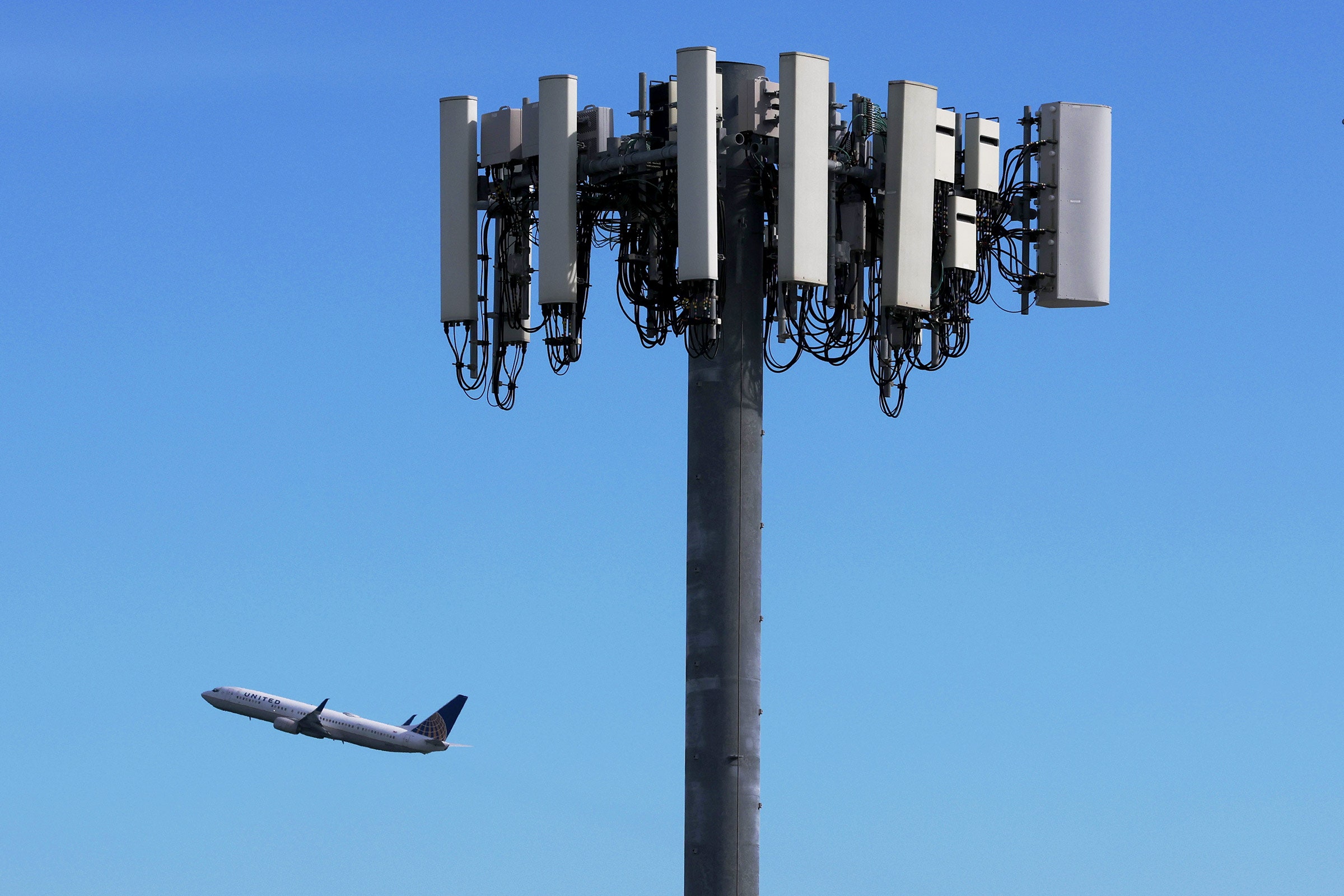If you buy something using links in our stories, we may earn a commission. This helps support our journalism. Learn more. Please also consider subscribing to WIRED
the activation of C-Band frequencies by AT&T and Verizon means that improved 5G networks are now available for millions of Americans. The long-anticipated rollout began on January 19, but with one caveat: Both companies temporarily pushed back plans for 5G networks near certain airports after criticism from the Federal Aviation Administration and multiple airlines about interference from 5G repeaters affecting airline radio altimeters.
AT&T’s and Verizon’s C-Band frequencies primarily range from 3.7 to 3.98 GHz; airlines are concerned these mid-band waves may impact the radio altimeters that pilots use to know how far planes are from the ground. A recent statement from United Airlines says that, “when deployed next to runways, the 5G signals could interfere with the key safety equipment that pilots rely on to take off and land in inclement weather.”
Two days before the 5G rollout, the trade organization Airlines for America sent a letter, signed by major airline CEOs, to US Transportation Department secretary Pete Buttigieg and others, urging them to intervene and stop 5G implementation within 2 miles of airports, something other countries have required as part of their own 5G rollouts.
When AT&T and Verizon postponed 5G by airports for six months, the companies emphasized the autonomy of their decision. In a statement to WIRED, an AT&T spokesperson says, “At our sole discretion we have voluntarily agreed to temporarily defer turning on a limited number of towers around certain airport runways as we continue to work with the aviation industry and the FAA to provide further information about our 5G deployment, since they have not utilized the two years they’ve had to responsibly plan for this deployment.”
Verizon’s similar comment on the situation focused on how the company “voluntarily decided” to pause the rollout and pointed blame toward the FAA and the airlines for not preparing to handle 5G frequencies, “despite it being safe and fully operational in more than 40 other countries.”
For their part, the FAA is trying to figure out which radio altimeters will not be affected by the 5G deployment. When C-Band is released near airports, Boeing 787 operators have been advised by the FAA to use extra precaution during storms. If necessary, aircraft can be retrofitted with improved altimeters to assist with landings in low-visibility situations.
According to a release on January 16 from the FAA, “The agency approved two radio altimeter models that are installed in a wide variety of Boeing and Airbus planes. This combination of aircraft and altimeter approval opens up runways at as many as 48 of the 88 airports most directly affected by 5G C-Band interference.” On January 19, the FAA added the Boeing 717, 777 and the Airbus A380 to their list of some approved airplane models.
President Joe Biden released a statement thanking AT&T and Verizon for the delay. It says, “This agreement will avoid potentially devastating disruptions to passenger travel, cargo operations, and our economic recovery, while allowing more than 90 percent of wireless tower deployment to occur as scheduled.”
According to the Biden administration, conversations to resolve the issue are ongoing. “My team has been engaging non-stop with the wireless carriers, airlines, and aviation equipment manufacturers to chart a path forward for 5G deployment and aviation to safely co-exist—and, at my direction, they will continue to do so until we close the remaining gap and reach a permanent, workable solution around these key airports,” the statement reads.
Despite the agreement between the airlines and wireless carriers, a few international airlines are canceling flights out of an abundance of caution, including Emirates, Air India, and Japan Airlines. Considering airlines are canceling flights because of staffing shortages, due to the continuing coronavirus pandemic, American travelers already have to deal with flight delays and cancellations, but concerns over 5G may cause additional disruptions.
For more information about whether your phone supports 5G or to find coverage maps, check out our guide here.
Updated on January 19 with new airplane model approvals from the FAA.
- 📩 The latest on tech, science, and more: Get our newsletters!
- Welcome to Miami, where all your memes come true!
- Bitcoin's libertarian streak meets an autocratic regime
- How to start (and keep) a healthy habit
- Natural history, not technology, will dictate our destiny
- Scientists settled family drama using DNA from postcards
- 👁️ Explore AI like never before with our new database
- 💻 Upgrade your work game with our Gear team’s favorite laptops, keyboards, typing alternatives, and noise-canceling headphones

